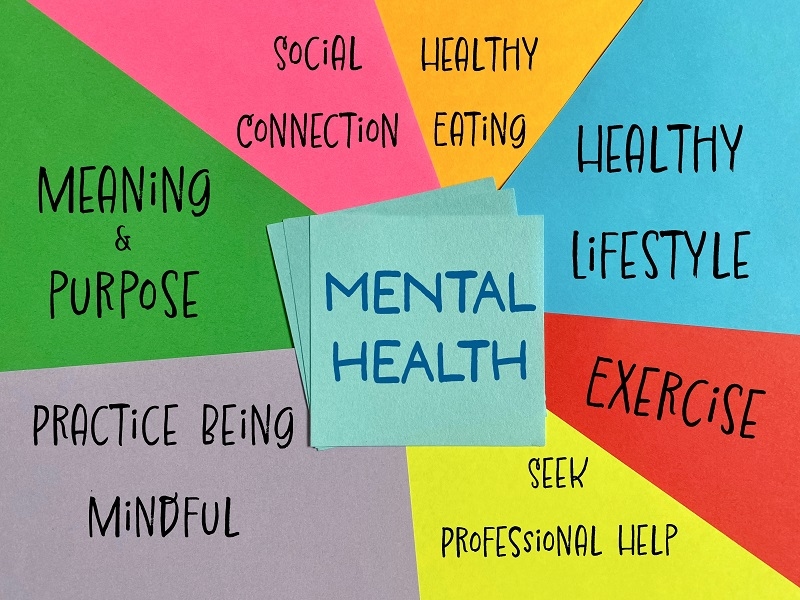
In today’s speedy-paced global, nurturing circle of relatives intellectual fitness suggestions has emerged as essential for preserving concord at domestic. Everyone in the home, including parents, children, and even senior citizens, will feel understood and supported if there is strong intellectual well-being. By training conscious parenting for mental health and inspiring kids’ intellectual fitness practices, households can create emotional stability at domestic that strengthens bonds and decreases pressure. With the proper techniques, you may construct a household wherein each member flourishes, enjoys open communication, and develops resilience in opposition to life’s demanding situations.
Modern households face demanding situations that previous generations in no way encountered. Technology, work strain, social media, and the tempo of normal life often leave little room for authentic connection. That’s why the use of own family intellectual health tips is more than simply advice—it’s a lifeline. Families that prioritize intellectual health in households generally tend to enjoy:
Households can build a basis for emotional balance at home and construct resilience over a prolonged time period by continuously adhering to those recommendations.
Creating emotional stability at domestic is ready extra than warding off conflicts. It’s approximately cultivating an environment in which anyone feels safe, heard, and respected. Families that prioritize stability understand that feelings are real and have to be expressed constructively. Here’s how to start:
Parents form the emotional weather of the house. Practicing conscious parenting for intellectual fitness helps children feel valued and teaches them how to take care of their feelings effectively. This consists of:
When mother and father lead with mindfulness, children certainly examine self-regulation and emotional recognition.
Simple daily or weekly rituals can help beef up family emotional health. These would possibly include family dinners, Sunday sport nights, or morning gratitude practices. Small routines build security and predictability, both crucial for kids’ experience of balance.
Encourage each member of the family to percentage mindfulness without worry of ridicule. Emotionally protective manner, respecting extraordinary views, and coaching empathy. Avoid invalidating feelings with phrases like “don’t be disappointed” or “you’re overreacting.” Instead, validate feelings and guide own family contributors towards more healthy responses.
These days, children deal with a variety of pressures, along with comparisons on social media and educational pressure. Physical activities that promote intellectual health must be incorporated into children's daily lives to help them develop emotional regulation skills and resilience.
Give children the words to express the emotions they are experiencing, such as pleasure, rage, disappointment, and frustration. Emotional literacy helps children to express their aspirations and reduces behavioral problems.
Encourage outdoor play, artistic endeavors, and face-to-face interactions. Reducing digital distractions enhances awareness and supports the emotional well-being of the family as a whole.

Focusing on mental well-being in families approach that addresses the desires of each member, not simply the children. Emotional stability thrives whilst all people feel reputable and supported.
Hold an everyday take a look at-ins in which everyone can express emotions or worries. These conversations don’t need to be formal—once in a while, a comfortable stroll or car journey works first-rate.
Divide family obligations fairly. When all and sundry contribute, no person feels overburdened, reducing stress and selling teamwork.
Gratitude fosters positivity and resilience. Encourage every family member to percentage one factor they’re grateful for day by day. This small addiction has a widespread impact on emotional balance at home.
Mindful parenting for intellectual fitness calls for patience and exercise; however, its impact is long-lasting. Parents can make intentional alternatives to guide their children’s emotional improvement whilst protecting their own well-being.
By showing those behaviors, dad and mom expand emotional intelligence and resilience, two characteristics that are vital for lengthy-time period properly-being.
True circle of relatives emotional health emerges when love, empathy, and appreciation guide day-to-day interactions. This calls for a regular attempt; however gives you powerful effects.
Respect method acknowledges and appreciates variations, whether or not they be in selections, sentiments, or reviews. Families who vicinity a high fee on admiration are better geared up to resolve disputes.
Even though it is a small achievement, celebrate it. When children celebrate their successes, they will become stimulated and feel more positive about themselves.
Just fifteen minutes a day of focused attention can deepen bonds. Shared laughter, storytelling, or interests maintain robust and balanced relationships.
Families who integrate those strategies experience benefits that increase beyond the home. Emotional stability and mental wellness in households lead to:
Following these circle of relatives mental fitness guidelines will help you not only meet your immediate requirements but also leave a resilient and connected legacy.
Despite the great intentions, households will face obstacles. Financial stress, work obligations, and external pressures can disrupt concord. Here’s how to overcome them:
Creating emotional balance at domestic starts with small, regular steps that guide every member’s well-being. Prioritizing mental well-being in families builds more potent connections, reduces pressure, and encourages open communication. Through aware parenting for intellectual fitness, dad and mom can develop healthy coping abilities at the same time as nurturing accept as true with and expertise. Incorporating positive routines, inclusive of each day take a look at-ins or calming activities, also strengthens children’s mental health practices and gives children the tools to manage feelings effectively.
Focusing on the circle of relatives' emotional wellness guarantees that everyone feels supported, valued, and resilient in dealing with life’s demanding situations. By embracing their own family's intellectual health tips, you could create a harmonious environment where balance, care, and happiness flourish together.
This content was created by AI